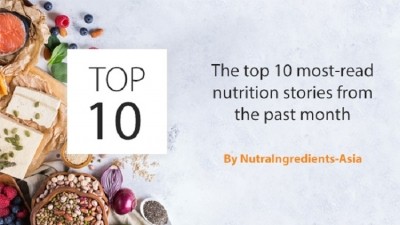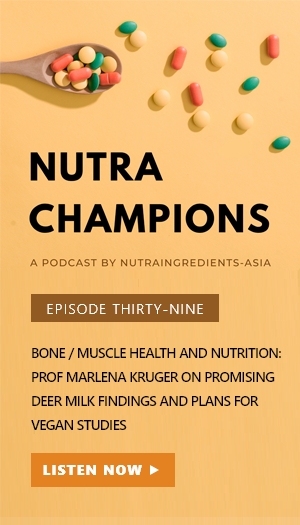Regulatory review: China’s electrolyte drinks, TGA’s safety advisory on ashwagandha and more

Electrolytes in the spotlight: China’s food industry association to set industry standards for drinks
China National Food Industry Association (CNFIA) said it was planning to set industry standards for electrolyte beverages, including its definition, technical and manufacturing, testing, labelling, and packaging requirements.
In its industry standards drafted, the CNFIA said that when disintegrated, electrolytes would produce minerals that are required for the normal physiological functions in humans, including calcium, sodium, magnesium, iron, zinc, selenium.
Also, it proposed to categorise electrolyte beverages into five groups, including carbonated and non-carbonated versions and solid drinks – meaning drinks that are made by dissolving powder sachet.
Misleading marketing: Taiwan sets harsher punishments for food firms violating advertising rules
Mainstream food and beverage firms flouting Taiwan advertising rules and regulations will be subjected to harsher punishments, with repeat offenders warned their businesses could be closed down.
The Taiwan Food and Drug Administration (FDA) has published new regulatory updates stating that violators of advertisement rules, particularly those aimed at misleading consumers with false health claims, will be subjected to harsher penalties.
This will be part of its weighted penalty system, under which violators are subject to increasingly harsher fines and punishments based on the number of recurring offenses and the relevant severity of these.
FSANZ considers use of Korean firm AP Tech’s 2’-FL HMO in infant formulas
Food Standards Australia New Zealand (FSANZ) has started a public consultation regarding the use of 2’-fucosyllactose (2’-FL) produced by Korean firm Advanced Protein Technologies (AP Tech) in infant formulas.
The 2’-FL is produced by microbial fermentation using a genetically modified (GM) bacteria strain known as Corynebacterium glutamicum – which is not yet listed as a permitted source organism for producing 2’-FL under the Australia New Zealand Food Standards Code (the Code).
The public consultation, which ends on March 22 (Friday), 6pm Canberra time, is meant to assess the possibility of adding the strain into the Code.
Ashwagandha warning: Australian officials issue safety advisory, highlight risks of unregulated, overseas products
Australian regulators have warned of the risks of purchasing supplements from overseas in its latest safety advisory for products containing Ashwagandha (Withania somnifera).
The Therapeutic Goods Administration (TGA) has highlighted the potential for gastrointestinal symptoms and very rare cases of liver injury following consumption.
It noted that some reports of liver damage involved products purchased online from overseas.
Stricter and safer: China proposes new pre-packaged labelling standards mandating clearer ingredient and origin information
The China government is proposing stricter guidelines for the labelling of pre-packaged foods and beverages, including mandating manufacturers to include clearer information on compound ingredients as well as more country-of-origin detail.
For instance, all food and beverage firms that use compound ingredients would need to specify them on the label and display each individual original ingredient separately in the ingredients list.
“Combinations of ingredients will no longer be allowed as [the final item] in the ingredients list in order to better ensure consumers are properly informed and also to facilitate supervision,” said the draft regulations.



















